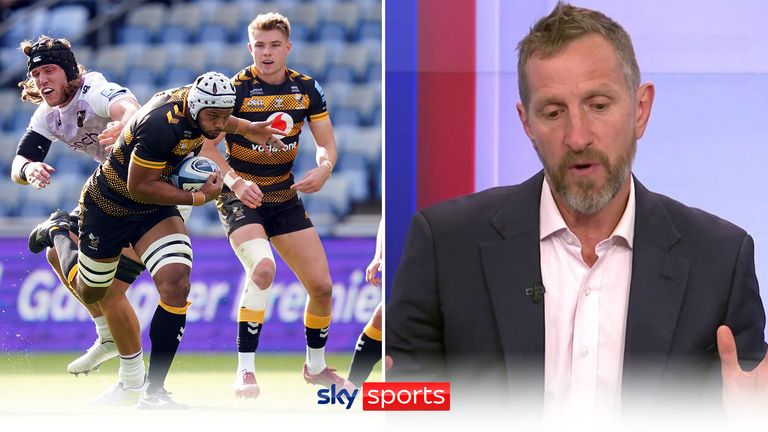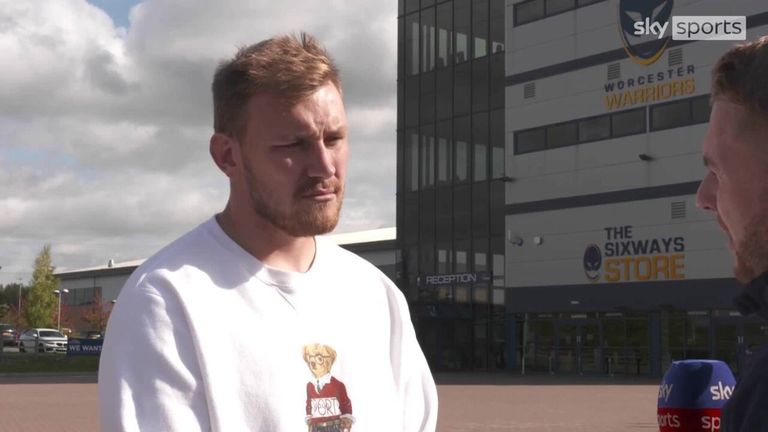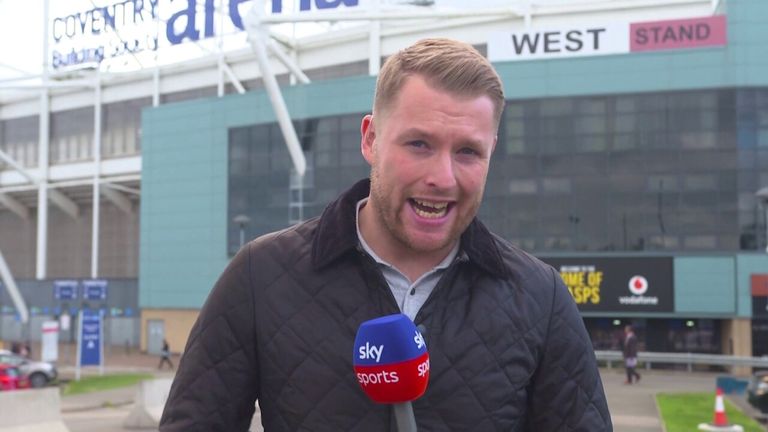RFU chief executive Bill Sweeney in favour of smaller Premiership amid rugby’s financial crisis | Rugby Union News
RFU chief executive Bill Sweeney says streamlined Premiership makes financial sense and would improve overlap between domestic and international game; Sweeney says rugby “has been living beyond its means” and that RFU cannot simply “bail out” ailing clubs like Wasps and Worcester
Last Updated: 16/10/22 11:35am

RFU chief Bill Sweeney has backed the idea of a 10-team Premiership amid rugby’s financial crisis
Rugby Football Union chief executive Bill Sweeney is in favour of a slimmed-down Premiership following the financial implosions at Wasps and Worcester and says his organisation cannot “bail out” cash-stricken clubs.
Wasps look set to enter administration after being suspended from the top flight and are now facing relegation to the Championship, while Worcester have already been wound up.
Sweeney feels a streamlined top flight makes commercial and sporting sense, although he says any changes are unlikely to come into effect until the 2024-2025 season.
When asked whether a 10-team first division was an option, Sweeney said: “I do see it as viable for a number of reasons, and we’ve been saying for quite some time now that less is more.
“I don’t know if 10 is the absolute number but that’s the one being used now and clearly there’s a financial benefit for less teams in that league.

2003 Rugby World Cup winner Will Greenwood describes Wasps’ administration as ‘enormously worrying’ and says that high wage caps might be a reason for many clubs’ financial problems.
“We’ve been saying less is more for a long time. (The clubs) didn’t like that approach a couple of years ago, mainly around the loss of matchday revenue.
“But I think now, with player welfare challenges on the number of matches you can play, a tighter, more condensed league makes more sense.
“One of the things that’s held us back in England is the overlap between the international game and the club game, so a reduction in the size of PRL (Premiership Rugby Limited) will help us with that.
“We believe reducing that overlap between club and country is a fundamental part of improving the narrative and product around the club game, which hopefully will then stimulate growth across match day revenue, broadcast value, and so on.
“Fans want to see their marquee players playing for their clubs, and England fans want to see England players able to perform at their very best. Therefore deconflicting that international calendar is a key consideration for us.”
Sweeney added: “What’s needed is to generate more revenues locally and we think more teams in the Championship and potentially less teams in the Premiership could help to create that. To grow, we need a sustainable second tier interacting with the Premiership.

Worcester’s Joe Batley discusses his and the club’s situation after the Warriors received a winding-up petition due to an unpaid tax bill of £6m, and as a result has seen contracts of players immediately terminated.
“Sadly, many professional clubs in the Premiership and Championship have been loss-making and reliant on owners funding their losses for a long time and that is clearly not sustainable.
“We know that consolidated losses for PRL were exceeding £40m in 2017 and £50m in 2018. PRL clubs were losing between four and five million a year prior to Covid and Covid has exacerbated that. Post-Covid, this very challenging economic environment has added further pressure.
“Some clubs have perhaps had slightly more precarious business models than others and I think we are seeing the outcome of that at the moment.
“We have known for some time that this is a sport living way beyond its means and has been reliant on the commitment and investment of wealthy benefactors.

With Wasps’ administration edging ever closer, the men’s players have been encouraged to find loan moves, with there being ‘nothing to train for’.
“A solution is not the RFU funding losses. These are individual businesses with their own executive boards. They are responsible for their own finances and cost controls and we can’t simply come in and bail them out from a financial perspective.
“Under the French model of greater financial transparency, we would have known about a situation like Worcester or Wasps before the season starts.
“Then it’s up to us to say ‘look we think you’re in a precarious position and we’re here to protect you’.
“In France they will force a reduced salary cap on one club alone, so we need greater governance and regulatory control allow you to make changes.
“We believe now there is an opportunity to work together so that we can all benefit and result in a structure and a league that enables clubs to break even and continue to attract new investment into the game.”




